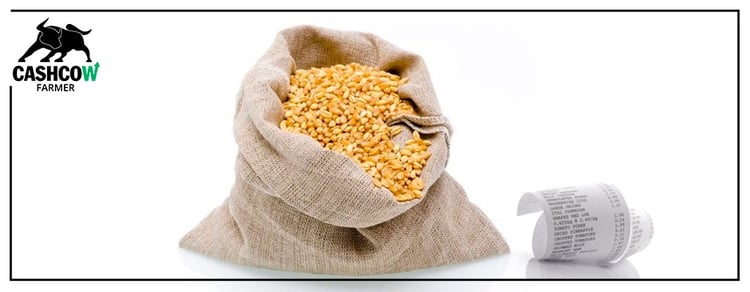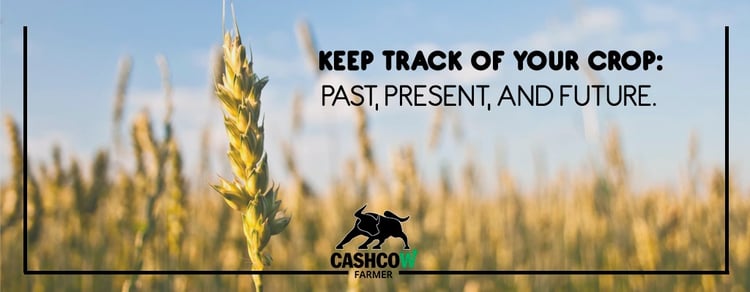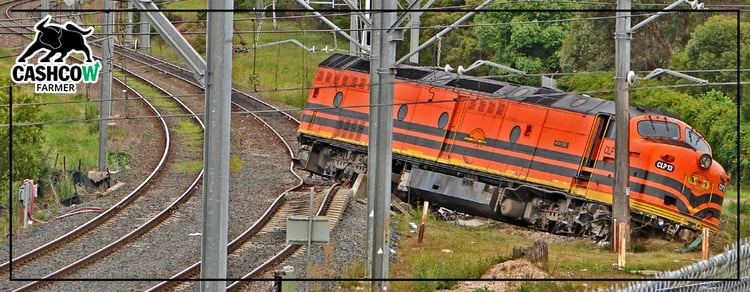Don't have time to read, click play above or subscribe to our podcast on itunes.
Data organization: The ability to organize and structure data to locate strengths, weaknesses, and opportunities in the farming operation.
On every operation, big or small, there are a lot of data points. Those data points have to be organized into a structure in order to locate efficiencies and inefficiencies.
Otherwise, you might go into a negotiating meeting not unprepared. A lot of farmers go to the negotiating table simply saying “that’s too expensive.” But if you bring specific, organized data from last year’s purchases, you’ll give yourself bargaining power and protection.
Data is useless unless it’s organized into a usable format. That’s really the point of the Cash Cow Farmer program: to manage your expenses and revenue so you can find the best investments in your operation.
Whether you use Cash Cow or some other means of recording, there are main types of farm data you should be tracking.
1) Inputs
Inputs are field-specific. This is because inputs are based on your goals for production and the productive capacity of each field.
Some fields might grow 200 bushels of corn; some might grow 120. Just because you’re growing 120 bushels doesn’t mean you’re not going to make money. You just have to vary your inputs accordingly.
The inputs section of your records includes all the applications on the farming operation: pounds of fertilizer applied, etc. They all have to be tracked, whether in a spreadsheet or something like Cash Cow Farmer.
2) Purchasing

You also have to track your purchasing of “raw materials.” If you had a manufacturing company, you’d be tracking all the purchases of angle iron, other steel and bolts. In farming, you’re tracking purchases such as your seed, fertilizer, chemical, and insurance.
The main goal with purchasing is to know the price you’re paying for everything. That way when you negotiate in the fall, you have a reference point for bargaining.
3) Overhead
Overheads are similar to purchasing, but a little bit different. They are the expenses to run your business: machinery purchases, fuel, labor, auto and farm liability insurance, and land acquisitions. These help you run a complete operation, and they too need to be tracked.
Let’s say you’re farming 10,000 acres, and you’ve got $1 million in annual overhead expenses: that’s $100 dollars an acre. If you’re losing land for whatever reason, your overhead will go up per acre if you don’t decrease it.
Fuel expense changes based on the price of oil. Machinery purchases are probably going to be down this year. You’ve got to keep track of all overhead expenses so you can locate weaknesses and put a plan in place to offset them (e.g., finding a different liability policy).
4) Inventory
It’s essential to keep tabs on old crop, new crop, and even next year’s crop.
How much unsold old crop do you have? How much marketed new crop? What do you expect to plant next year?

You want to be thinking at least a year ahead. For example, next year’s corn (based on the futures market) is over $4. For this year’s corn, we’re looking at $3.80.
If you’re like most farmers, you’d sell this year’s crop if you could hit $4; well, you’ve got that opportunity, so it’s not a bad idea to think a year ahead and make some marketing contracts.
5) Financial Data
Balance sheet, cash flow, tax management . . . It’s actually not as complicated as it sounds.
Once you’ve built a balance sheet, you only have to maintain it afterwards. You’ve got your assets and liabilities, which change periodically, and as you buy and sell old machinery you add and remove them from the balance sheet.
They say "businesses don’t go out of business because they’re not profitable: they go out of business because they run out of cash". Cash flow management is what every banker wants to see.
This is challenging for farmers, because for most of the year we’re spending; we only have a couple of months of harvesting and monetizing our assets. During certain months, we have huge expenses; in others, huge revenues. Maintaining adequate capital is crucial.
This came up recently with a Cash Cow customer. For some reason the train at his local buyer wasn’t running right, so he couldn’t bring his corn to market. All this corn was going to turn to cash, but the train schedule kept him from monetizing. He had to take out an emergency loan.

You don’t want to be put into those positions. That’s why we have a consulting branch at the Cash Cow Farmer program in which we help farmers with financial statements.
Every month on a call, we advise where the strengths, opportunities, and weaknesses are in their operation, as well as update their cash flow and balance sheets—all to make sure they’re in a good position.
We offer two levels:
- Data management - We do all the data entry for the farmer.
- Full-on consulting - We essentially act as a financial analyst on behalf of the farmer.
Cash Cow consulting is extremely cheap: if you hired people yourself, such as a bookkeeper to do the data and an accountant, it would be about 10 times what we charge.
Conclusion
If you don’t use Cash Cow Farmer, make sure you’ve got a good spreadsheet, accountant, or bookkeeper tracking everything for you. Do this on a regular basis—monthly, if you can.
Harvest and planting months are extremely hectic for data management, so make sure you’re using something. You’re never going to go out of business if you’ve got a plan and you’re focused on the financial side of farming.
To learn more about the Cash Cow Farmer program, including software and consulting, give us a ring!




